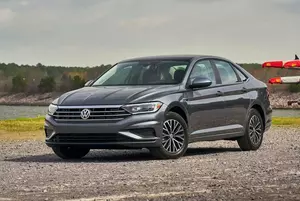
| Vehicle | Precise engine size | Difference from world average | Engine size to consumption ratio | Horsepower from 1 L | Engine size to 100 kg of weight |
|---|---|---|---|---|---|
| 1.4 TSI |
1.4 L (1395 cc) |
40.5% smaller | 41 cc to 1 mpg | 105 hp from 1 L | 107 cc to 100 kg |
| GLI 2.0 TSI |
1.98 L (1983 cc) |
15.5% smaller | 71 cc to 1 mpg | 115 hp from 1 L | 132 cc to 100 kg |
| Vehicle | 1.4 TSI |
|---|---|
| Precise engine size | 1.4 L (1395 cc) |
| Difference from world average | 40.5 smaller |
| Engine size to consumption ratio | 41 cc to 1 mpg |
| Horsepower from 1 L | 105 hp from 1 L |
| Engine size to 100 kg of weight | 107 cc to 100 kg |
| Vehicle | GLI 2.0 TSI |
| Precise engine size | 1.98 L (1983 cc) |
| Difference from world average | 15.5 smaller |
| Engine size to consumption ratio | 71 cc to 1 mpg |
| Horsepower from 1 L | 115 hp from 1 L |
| Engine size to 100 kg of weight | 132 cc to 100 kg |
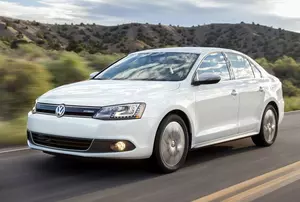
| Vehicle | Precise engine size | Difference from world average | Engine size to consumption ratio | Horsepower from 1 L | Engine size to 100 kg of weight |
|---|---|---|---|---|---|
| 1.2 TSI |
1.2 L (1197 cc) |
49% smaller | 26 cc to 1 mpg | 88 hp from 1 L | 92 cc to 100 kg |
| 1.4 TSI |
1.4 L (1395 cc) |
40.5% smaller | 30 cc to 1 mpg | 107 hp from 1 L | 100 cc to 100 kg |
| 2.0 TDI |
1.97 L (1968 cc) |
16.1% smaller | 38 cc to 1 mpg | 76 hp from 1 L | 141 cc to 100 kg |
| Vehicle | 1.2 TSI |
|---|---|
| Precise engine size | 1.2 L (1197 cc) |
| Difference from world average | 49 smaller |
| Engine size to consumption ratio | 26 cc to 1 mpg |
| Horsepower from 1 L | 88 hp from 1 L |
| Engine size to 100 kg of weight | 92 cc to 100 kg |
| Vehicle | 1.4 TSI |
| Precise engine size | 1.4 L (1395 cc) |
| Difference from world average | 40.5 smaller |
| Engine size to consumption ratio | 30 cc to 1 mpg |
| Horsepower from 1 L | 107 hp from 1 L |
| Engine size to 100 kg of weight | 100 cc to 100 kg |
| Vehicle | 2.0 TDI |
| Precise engine size | 1.97 L (1968 cc) |
| Difference from world average | 16.1 smaller |
| Engine size to consumption ratio | 38 cc to 1 mpg |
| Horsepower from 1 L | 76 hp from 1 L |
| Engine size to 100 kg of weight | 141 cc to 100 kg |
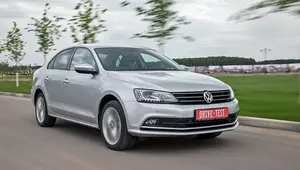
| Vehicle | Precise engine size | Difference from world average | Engine size to consumption ratio | Horsepower from 1 L | Engine size to 100 kg of weight |
|---|---|---|---|---|---|
| 1.4i TSI |
1.39 L (1390 cc) |
40.8% smaller | 33 cc to 1 mpg | 88 hp from 1 L | 99 cc to 100 kg |
| 1.6i 16V |
1.6 L (1595 cc) |
32% smaller | 46 cc to 1 mpg | 64 hp from 1 L | 114 cc to 100 kg |
| 1.2 |
1.2 L (1197 cc) |
49% smaller | 29 cc to 1 mpg | 88 hp from 1 L | 92 cc to 100 kg |
| 1.6 |
1.6 L (1598 cc) |
31.9% smaller | 32 cc to 1 mpg | 66 hp from 1 L | 114 cc to 100 kg |
| 2.0 TDI |
1.97 L (1968 cc) |
16.1% smaller | 40 cc to 1 mpg | 71 hp from 1 L | 141 cc to 100 kg |
| Vehicle | 1.4i TSI |
|---|---|
| Precise engine size | 1.39 L (1390 cc) |
| Difference from world average | 40.8 smaller |
| Engine size to consumption ratio | 33 cc to 1 mpg |
| Horsepower from 1 L | 88 hp from 1 L |
| Engine size to 100 kg of weight | 99 cc to 100 kg |
| Vehicle | 1.6i 16V |
| Precise engine size | 1.6 L (1595 cc) |
| Difference from world average | 32 smaller |
| Engine size to consumption ratio | 46 cc to 1 mpg |
| Horsepower from 1 L | 64 hp from 1 L |
| Engine size to 100 kg of weight | 114 cc to 100 kg |
| Vehicle | 1.2 |
| Precise engine size | 1.2 L (1197 cc) |
| Difference from world average | 49 smaller |
| Engine size to consumption ratio | 29 cc to 1 mpg |
| Horsepower from 1 L | 88 hp from 1 L |
| Engine size to 100 kg of weight | 92 cc to 100 kg |
| Vehicle | 1.6 |
| Precise engine size | 1.6 L (1598 cc) |
| Difference from world average | 31.9 smaller |
| Engine size to consumption ratio | 32 cc to 1 mpg |
| Horsepower from 1 L | 66 hp from 1 L |
| Engine size to 100 kg of weight | 114 cc to 100 kg |
| Vehicle | 2.0 TDI |
| Precise engine size | 1.97 L (1968 cc) |
| Difference from world average | 16.1 smaller |
| Engine size to consumption ratio | 40 cc to 1 mpg |
| Horsepower from 1 L | 71 hp from 1 L |
| Engine size to 100 kg of weight | 141 cc to 100 kg |
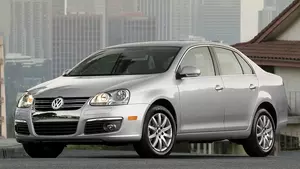
| Vehicle | Precise engine size | Difference from world average | Engine size to consumption ratio | Horsepower from 1 L | Engine size to 100 kg of weight |
|---|---|---|---|---|---|
| 1.4 TSI |
1.39 L (1390 cc) |
40.8% smaller | 38 cc to 1 mpg | 115 hp from 1 L | 99 cc to 100 kg |
| 1.6 FSI |
1.6 L (1598 cc) |
31.9% smaller | 47 cc to 1 mpg | 72 hp from 1 L | 123 cc to 100 kg |
| 1.6 i |
1.6 L (1595 cc) |
32% smaller | 51 cc to 1 mpg | 64 hp from 1 L | 123 cc to 100 kg |
| 1.9 TDI PDE |
1.9 L (1896 cc) |
19.2% smaller | 47 cc to 1 mpg | 55 hp from 1 L | 146 cc to 100 kg |
| 2.0 FSI |
1.98 L (1984 cc) |
15.4% smaller | 68 cc to 1 mpg | 76 hp from 1 L | 153 cc to 100 kg |
| 2.0 TDI PDE |
1.97 L (1968 cc) |
16.1% smaller | 46 cc to 1 mpg | 71 hp from 1 L | - |
| 2.0 TFSI |
1.98 L (1984 cc) |
15.4% smaller | - | 101 hp from 1 L | - |
| 2.5i |
2.48 L (2480 cc) |
5.7% bigger | 86 cc to 1 mpg | 60 hp from 1 L | 191 cc to 100 kg |
| Vehicle | 1.4 TSI |
|---|---|
| Precise engine size | 1.39 L (1390 cc) |
| Difference from world average | 40.8 smaller |
| Engine size to consumption ratio | 38 cc to 1 mpg |
| Horsepower from 1 L | 115 hp from 1 L |
| Engine size to 100 kg of weight | 99 cc to 100 kg |
| Vehicle | 1.6 FSI |
| Precise engine size | 1.6 L (1598 cc) |
| Difference from world average | 31.9 smaller |
| Engine size to consumption ratio | 47 cc to 1 mpg |
| Horsepower from 1 L | 72 hp from 1 L |
| Engine size to 100 kg of weight | 123 cc to 100 kg |
| Vehicle | 1.6 i |
| Precise engine size | 1.6 L (1595 cc) |
| Difference from world average | 32 smaller |
| Engine size to consumption ratio | 51 cc to 1 mpg |
| Horsepower from 1 L | 64 hp from 1 L |
| Engine size to 100 kg of weight | 123 cc to 100 kg |
| Vehicle | 1.9 TDI PDE |
| Precise engine size | 1.9 L (1896 cc) |
| Difference from world average | 19.2 smaller |
| Engine size to consumption ratio | 47 cc to 1 mpg |
| Horsepower from 1 L | 55 hp from 1 L |
| Engine size to 100 kg of weight | 146 cc to 100 kg |
| Vehicle | 2.0 FSI |
| Precise engine size | 1.98 L (1984 cc) |
| Difference from world average | 15.4 smaller |
| Engine size to consumption ratio | 68 cc to 1 mpg |
| Horsepower from 1 L | 76 hp from 1 L |
| Engine size to 100 kg of weight | 153 cc to 100 kg |
| Vehicle | 2.0 TDI PDE |
| Precise engine size | 1.97 L (1968 cc) |
| Difference from world average | 16.1 smaller |
| Engine size to consumption ratio | 46 cc to 1 mpg |
| Horsepower from 1 L | 71 hp from 1 L |
| Engine size to 100 kg of weight | - |
| Vehicle | 2.0 TFSI |
| Precise engine size | 1.98 L (1984 cc) |
| Difference from world average | 15.4 smaller |
| Engine size to consumption ratio | - |
| Horsepower from 1 L | 101 hp from 1 L |
| Engine size to 100 kg of weight | - |
| Vehicle | 2.5i |
| Precise engine size | 2.48 L (2480 cc) |
| Difference from world average | 5.7 bigger |
| Engine size to consumption ratio | 86 cc to 1 mpg |
| Horsepower from 1 L | 60 hp from 1 L |
| Engine size to 100 kg of weight | 191 cc to 100 kg |

| Vehicle | Precise engine size | Difference from world average | Engine size to consumption ratio | Horsepower from 1 L | Engine size to 100 kg of weight |
|---|---|---|---|---|---|
| 1.9 TDI |
1.9 L (1896 cc) |
19.2% smaller | - | 47 hp from 1 L | 112 cc to 100 kg |
| 2.3 VR5 20V |
2.32 L (2324 cc) |
0.9% smaller | 86 cc to 1 mpg | 73 hp from 1 L | 179 cc to 100 kg |
| 1.8T 20V |
1.78 L (1781 cc) |
24.1% smaller | - | 84 hp from 1 L | 137 cc to 100 kg |
| 2.0 |
1.98 L (1984 cc) |
15.4% smaller | - | 58 hp from 1 L | 165 cc to 100 kg |
| 1.6 |
1.6 L (1595 cc) |
32% smaller | 51 cc to 1 mpg | 63 hp from 1 L | 133 cc to 100 kg |
| 1.4 16V |
1.39 L (1390 cc) |
40.8% smaller | 39 cc to 1 mpg | 54 hp from 1 L | 116 cc to 100 kg |
| 1.6 16V |
1.6 L (1598 cc) |
31.9% smaller | 47 cc to 1 mpg | 66 hp from 1 L | 133 cc to 100 kg |
| 1.8 i T |
1.78 L (1781 cc) |
24.1% smaller | - | 101 hp from 1 L | 137 cc to 100 kg |
| 2.3 VR5 |
2.32 L (2324 cc) |
0.9% smaller | - | 65 hp from 1 L | 179 cc to 100 kg |
| 2.8 VR6 |
2.79 L (2792 cc) |
19% bigger | - | 72 hp from 1 L | 186 cc to 100 kg |
| Vehicle | 1.9 TDI |
|---|---|
| Precise engine size | 1.9 L (1896 cc) |
| Difference from world average | 19.2 smaller |
| Engine size to consumption ratio | - |
| Horsepower from 1 L | 47 hp from 1 L |
| Engine size to 100 kg of weight | 112 cc to 100 kg |
| Vehicle | 2.3 VR5 20V |
| Precise engine size | 2.32 L (2324 cc) |
| Difference from world average | 0.9 smaller |
| Engine size to consumption ratio | 86 cc to 1 mpg |
| Horsepower from 1 L | 73 hp from 1 L |
| Engine size to 100 kg of weight | 179 cc to 100 kg |
| Vehicle | 1.8T 20V |
| Precise engine size | 1.78 L (1781 cc) |
| Difference from world average | 24.1 smaller |
| Engine size to consumption ratio | - |
| Horsepower from 1 L | 84 hp from 1 L |
| Engine size to 100 kg of weight | 137 cc to 100 kg |
| Vehicle | 2.0 |
| Precise engine size | 1.98 L (1984 cc) |
| Difference from world average | 15.4 smaller |
| Engine size to consumption ratio | - |
| Horsepower from 1 L | 58 hp from 1 L |
| Engine size to 100 kg of weight | 165 cc to 100 kg |
| Vehicle | 1.6 |
| Precise engine size | 1.6 L (1595 cc) |
| Difference from world average | 32 smaller |
| Engine size to consumption ratio | 51 cc to 1 mpg |
| Horsepower from 1 L | 63 hp from 1 L |
| Engine size to 100 kg of weight | 133 cc to 100 kg |
| Vehicle | 1.4 16V |
| Precise engine size | 1.39 L (1390 cc) |
| Difference from world average | 40.8 smaller |
| Engine size to consumption ratio | 39 cc to 1 mpg |
| Horsepower from 1 L | 54 hp from 1 L |
| Engine size to 100 kg of weight | 116 cc to 100 kg |
| Vehicle | 1.6 16V |
| Precise engine size | 1.6 L (1598 cc) |
| Difference from world average | 31.9 smaller |
| Engine size to consumption ratio | 47 cc to 1 mpg |
| Horsepower from 1 L | 66 hp from 1 L |
| Engine size to 100 kg of weight | 133 cc to 100 kg |
| Vehicle | 1.8 i T |
| Precise engine size | 1.78 L (1781 cc) |
| Difference from world average | 24.1 smaller |
| Engine size to consumption ratio | - |
| Horsepower from 1 L | 101 hp from 1 L |
| Engine size to 100 kg of weight | 137 cc to 100 kg |
| Vehicle | 2.3 VR5 |
| Precise engine size | 2.32 L (2324 cc) |
| Difference from world average | 0.9 smaller |
| Engine size to consumption ratio | - |
| Horsepower from 1 L | 65 hp from 1 L |
| Engine size to 100 kg of weight | 179 cc to 100 kg |
| Vehicle | 2.8 VR6 |
| Precise engine size | 2.79 L (2792 cc) |
| Difference from world average | 19 bigger |
| Engine size to consumption ratio | - |
| Horsepower from 1 L | 72 hp from 1 L |
| Engine size to 100 kg of weight | 186 cc to 100 kg |
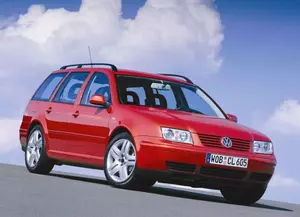
| Vehicle | Precise engine size | Difference from world average | Engine size to consumption ratio | Horsepower from 1 L | Engine size to 100 kg of weight |
|---|---|---|---|---|---|
| 1.8i T 20V |
1.78 L (1781 cc) |
24.1% smaller | - | 84 hp from 1 L | 127 cc to 100 kg |
| 2.0 |
1.98 L (1984 cc) |
15.4% smaller | 68 cc to 1 mpg | 58 hp from 1 L | 153 cc to 100 kg |
| 1.9 TDI |
1.9 L (1896 cc) |
19.2% smaller | 43 cc to 1 mpg | 79 hp from 1 L | 135 cc to 100 kg |
| 2.3 VR5 |
2.32 L (2324 cc) |
0.9% smaller | 89 cc to 1 mpg | 65 hp from 1 L | 166 cc to 100 kg |
| Vehicle | 1.8i T 20V |
|---|---|
| Precise engine size | 1.78 L (1781 cc) |
| Difference from world average | 24.1 smaller |
| Engine size to consumption ratio | - |
| Horsepower from 1 L | 84 hp from 1 L |
| Engine size to 100 kg of weight | 127 cc to 100 kg |
| Vehicle | 2.0 |
| Precise engine size | 1.98 L (1984 cc) |
| Difference from world average | 15.4 smaller |
| Engine size to consumption ratio | 68 cc to 1 mpg |
| Horsepower from 1 L | 58 hp from 1 L |
| Engine size to 100 kg of weight | 153 cc to 100 kg |
| Vehicle | 1.9 TDI |
| Precise engine size | 1.9 L (1896 cc) |
| Difference from world average | 19.2 smaller |
| Engine size to consumption ratio | 43 cc to 1 mpg |
| Horsepower from 1 L | 79 hp from 1 L |
| Engine size to 100 kg of weight | 135 cc to 100 kg |
| Vehicle | 2.3 VR5 |
| Precise engine size | 2.32 L (2324 cc) |
| Difference from world average | 0.9 smaller |
| Engine size to consumption ratio | 89 cc to 1 mpg |
| Horsepower from 1 L | 65 hp from 1 L |
| Engine size to 100 kg of weight | 166 cc to 100 kg |
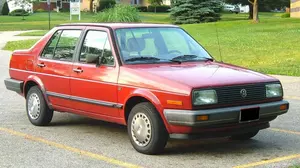
| Vehicle | Precise engine size | Difference from world average | Engine size to consumption ratio | Horsepower from 1 L | Engine size to 100 kg of weight |
|---|---|---|---|---|---|
| 1.8 |
1.78 L (1781 cc) |
24.1% smaller | 59 cc to 1 mpg | 51 hp from 1 L | 148 cc to 100 kg |
| 2.0 |
1.98 L (1984 cc) |
15.4% smaller | 64 cc to 1 mpg | 58 hp from 1 L | 165 cc to 100 kg |
| 2.8 VR6 |
2.79 L (2792 cc) |
19% bigger | 107 cc to 1 mpg | 62 hp from 1 L | 215 cc to 100 kg |
| 1.6 |
1.6 L (1595 cc) |
32% smaller | 51 cc to 1 mpg | 63 hp from 1 L | 133 cc to 100 kg |
| 1.9 D |
1.9 L (1896 cc) |
19.2% smaller | 40 cc to 1 mpg | 34 hp from 1 L | 158 cc to 100 kg |
| 1.9 TDI |
1.9 L (1896 cc) |
19.2% smaller | 46 cc to 1 mpg | 47 hp from 1 L | 146 cc to 100 kg |
| 1.9 SDI |
1.9 L (1896 cc) |
19.2% smaller | 40 cc to 1 mpg | 34 hp from 1 L | 135 cc to 100 kg |
| 1.9 TD |
1.9 L (1896 cc) |
19.2% smaller | 61 cc to 1 mpg | 39 hp from 1 L | 158 cc to 100 kg |
| Vehicle | 1.8 |
|---|---|
| Precise engine size | 1.78 L (1781 cc) |
| Difference from world average | 24.1 smaller |
| Engine size to consumption ratio | 59 cc to 1 mpg |
| Horsepower from 1 L | 51 hp from 1 L |
| Engine size to 100 kg of weight | 148 cc to 100 kg |
| Vehicle | 2.0 |
| Precise engine size | 1.98 L (1984 cc) |
| Difference from world average | 15.4 smaller |
| Engine size to consumption ratio | 64 cc to 1 mpg |
| Horsepower from 1 L | 58 hp from 1 L |
| Engine size to 100 kg of weight | 165 cc to 100 kg |
| Vehicle | 2.8 VR6 |
| Precise engine size | 2.79 L (2792 cc) |
| Difference from world average | 19 bigger |
| Engine size to consumption ratio | 107 cc to 1 mpg |
| Horsepower from 1 L | 62 hp from 1 L |
| Engine size to 100 kg of weight | 215 cc to 100 kg |
| Vehicle | 1.6 |
| Precise engine size | 1.6 L (1595 cc) |
| Difference from world average | 32 smaller |
| Engine size to consumption ratio | 51 cc to 1 mpg |
| Horsepower from 1 L | 63 hp from 1 L |
| Engine size to 100 kg of weight | 133 cc to 100 kg |
| Vehicle | 1.9 D |
| Precise engine size | 1.9 L (1896 cc) |
| Difference from world average | 19.2 smaller |
| Engine size to consumption ratio | 40 cc to 1 mpg |
| Horsepower from 1 L | 34 hp from 1 L |
| Engine size to 100 kg of weight | 158 cc to 100 kg |
| Vehicle | 1.9 TDI |
| Precise engine size | 1.9 L (1896 cc) |
| Difference from world average | 19.2 smaller |
| Engine size to consumption ratio | 46 cc to 1 mpg |
| Horsepower from 1 L | 47 hp from 1 L |
| Engine size to 100 kg of weight | 146 cc to 100 kg |
| Vehicle | 1.9 SDI |
| Precise engine size | 1.9 L (1896 cc) |
| Difference from world average | 19.2 smaller |
| Engine size to consumption ratio | 40 cc to 1 mpg |
| Horsepower from 1 L | 34 hp from 1 L |
| Engine size to 100 kg of weight | 135 cc to 100 kg |
| Vehicle | 1.9 TD |
| Precise engine size | 1.9 L (1896 cc) |
| Difference from world average | 19.2 smaller |
| Engine size to consumption ratio | 61 cc to 1 mpg |
| Horsepower from 1 L | 39 hp from 1 L |
| Engine size to 100 kg of weight | 158 cc to 100 kg |
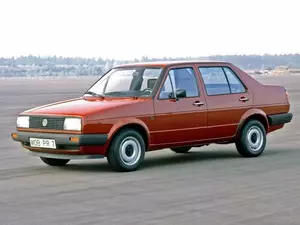
| Vehicle | Precise engine size | Difference from world average | Engine size to consumption ratio | Horsepower from 1 L | Engine size to 100 kg of weight |
|---|---|---|---|---|---|
| 1.8i |
1.78 L (1781 cc) |
24.1% smaller | 64 cc to 1 mpg | 51 hp from 1 L | 178 cc to 100 kg |
| 1.6 |
1.6 L (1600 cc) |
31.8% smaller | - | 47 hp from 1 L | - |
| 1.3 i |
1.27 L (1272 cc) |
45.8% smaller | 42 cc to 1 mpg | 43 hp from 1 L | 141 cc to 100 kg |
| 1.6 D |
1.6 L (1600 cc) |
31.8% smaller | - | 34 hp from 1 L | - |
| 1.8 i 16V |
1.78 L (1781 cc) |
24.1% smaller | 69 cc to 1 mpg | 72 hp from 1 L | 178 cc to 100 kg |
| 1.8 i Syncro |
1.78 L (1781 cc) |
24.1% smaller | 69 cc to 1 mpg | 55 hp from 1 L | 162 cc to 100 kg |
| 1.8 i |
1.78 L (1781 cc) |
24.1% smaller | 66 cc to 1 mpg | 60 hp from 1 L | 178 cc to 100 kg |
| 2.0 i 16V |
1.98 L (1984 cc) |
15.4% smaller | 76 cc to 1 mpg | 68 hp from 1 L | 198 cc to 100 kg |
| Vehicle | 1.8i |
|---|---|
| Precise engine size | 1.78 L (1781 cc) |
| Difference from world average | 24.1 smaller |
| Engine size to consumption ratio | 64 cc to 1 mpg |
| Horsepower from 1 L | 51 hp from 1 L |
| Engine size to 100 kg of weight | 178 cc to 100 kg |
| Vehicle | 1.6 |
| Precise engine size | 1.6 L (1600 cc) |
| Difference from world average | 31.8 smaller |
| Engine size to consumption ratio | - |
| Horsepower from 1 L | 47 hp from 1 L |
| Engine size to 100 kg of weight | - |
| Vehicle | 1.3 i |
| Precise engine size | 1.27 L (1272 cc) |
| Difference from world average | 45.8 smaller |
| Engine size to consumption ratio | 42 cc to 1 mpg |
| Horsepower from 1 L | 43 hp from 1 L |
| Engine size to 100 kg of weight | 141 cc to 100 kg |
| Vehicle | 1.6 D |
| Precise engine size | 1.6 L (1600 cc) |
| Difference from world average | 31.8 smaller |
| Engine size to consumption ratio | - |
| Horsepower from 1 L | 34 hp from 1 L |
| Engine size to 100 kg of weight | - |
| Vehicle | 1.8 i 16V |
| Precise engine size | 1.78 L (1781 cc) |
| Difference from world average | 24.1 smaller |
| Engine size to consumption ratio | 69 cc to 1 mpg |
| Horsepower from 1 L | 72 hp from 1 L |
| Engine size to 100 kg of weight | 178 cc to 100 kg |
| Vehicle | 1.8 i Syncro |
| Precise engine size | 1.78 L (1781 cc) |
| Difference from world average | 24.1 smaller |
| Engine size to consumption ratio | 69 cc to 1 mpg |
| Horsepower from 1 L | 55 hp from 1 L |
| Engine size to 100 kg of weight | 162 cc to 100 kg |
| Vehicle | 1.8 i |
| Precise engine size | 1.78 L (1781 cc) |
| Difference from world average | 24.1 smaller |
| Engine size to consumption ratio | 66 cc to 1 mpg |
| Horsepower from 1 L | 60 hp from 1 L |
| Engine size to 100 kg of weight | 178 cc to 100 kg |
| Vehicle | 2.0 i 16V |
| Precise engine size | 1.98 L (1984 cc) |
| Difference from world average | 15.4 smaller |
| Engine size to consumption ratio | 76 cc to 1 mpg |
| Horsepower from 1 L | 68 hp from 1 L |
| Engine size to 100 kg of weight | 198 cc to 100 kg |